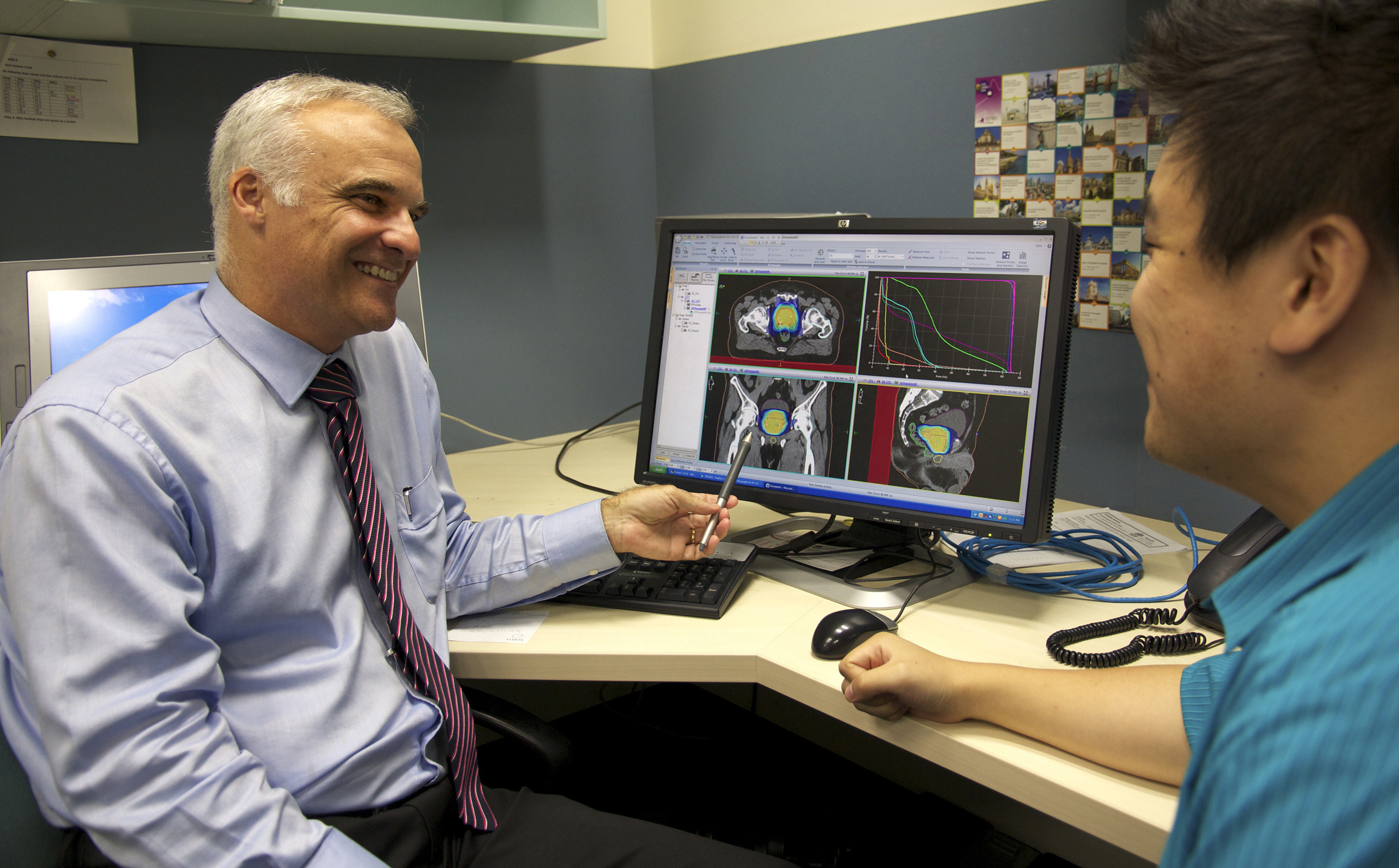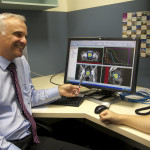Radiation Therapy: Effective for Prostate Cancer


Research published in the Journal of Medical Imaging and Radiation Oncology in 2015 shows that external-beam radiation therapy is a highly effective treatment option for prostate cancer.
Men with localised prostate cancer who are treated with external-beam radiation therapy have a cure rate of 95.5% for intermediate-risk prostate cancer and 91.3% for high-risk prostate cancer.
The 5-year survival rate using this treatment is 98.8% overall.
When compared to other common treatment options such as surgery or brachytherapy, external-beam was as effective and in some cases more effective.
A/Prof Tom Shakespeare, Radiation Oncologist at the North Coast Cancer Institute, led the eight year study comparing the effectiveness of external-beam radiation therapy with other common treatment options such as surgery or brachytherapy.
surgery or brachytherapy.
“The main outcome that we have seen from this study is that external-beam radiation therapy is one of the most effective treatment options for prostate cancer,” he said.
“These are great results showing that radiation therapy is as effective, or even better, than other common treatment options such as surgery or brachytherapy.
“In fact, based on the literature reviewed, it appears that external-beam radiation therapy is a superior treatment in some cases.
“When patients are treated with modern external-beam radiation therapy, the overall cure rate was 93.3% with a metastasis-free survival rate at 5 years of 96.9%.
“Based on these results, it is critical that all patients can access multidisciplinary care or be referred to a radiation oncologist for a discussion of this treatment option.
“Unfortunately, this does not always happen.
“While one in two patients with cancer could benefit from radiation therapy, less than one in three will actually access the treatment.
“As a regional oncologist I am also proud to demonstrate that regional centres such as the North Coast Cancer Institute can achieve these excellent outcomes, similar to the metropolitan centres of excellence in Sydney or Melbourne.”
Dean of the Faculty of Radiation Oncology, Dr Dion Forstner, said the study showed that radiation therapy was a sophisticated and highly effective treatment.
“We know that radiation therapy is a highly effective treatment for all cancers, it is involved in around 40% of cancer cures,” Dr Forstner said.
“Critically, this study examines the use of Intensity Modulated Radiation Therapy, an advanced technique of delivering radiation therapy in precise doses.
“Results such as the ones shown in this study show that Intensity Modulated Radiation Therapy is a critical part of modern radiation therapy.
“Unfortunately, the Federal Government has been dragging their feet on adequate funding for this treatment.
“The Medical Services Advisory Committee has again deferred making a decision on funding this treatment appropriately under the Medicare Benefits Schedule.
“This is a world-class treatment that has already been accepted internationally. At present 1 in 4 patients in the UK that receive radiation therapy are treated with this technique but in Australia that is as low as 1 in 10 patients only.
“The Royal Australian and New Zealand College of Radiologists urges the Government to properly reimburse IMRT so it is available for all patients who would benefit.”



